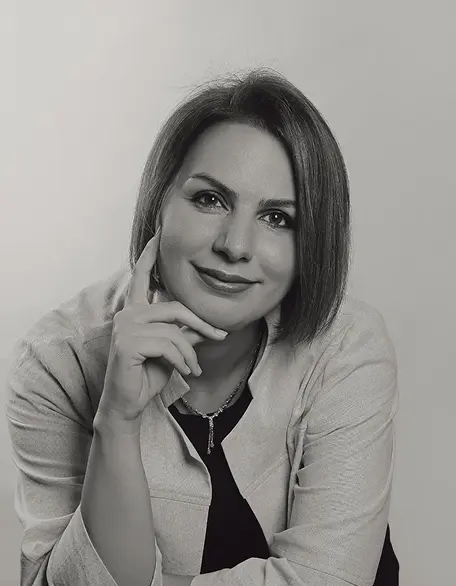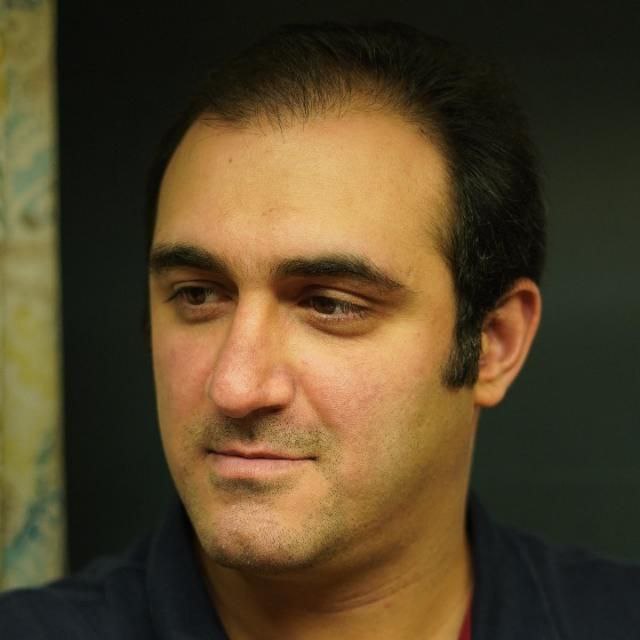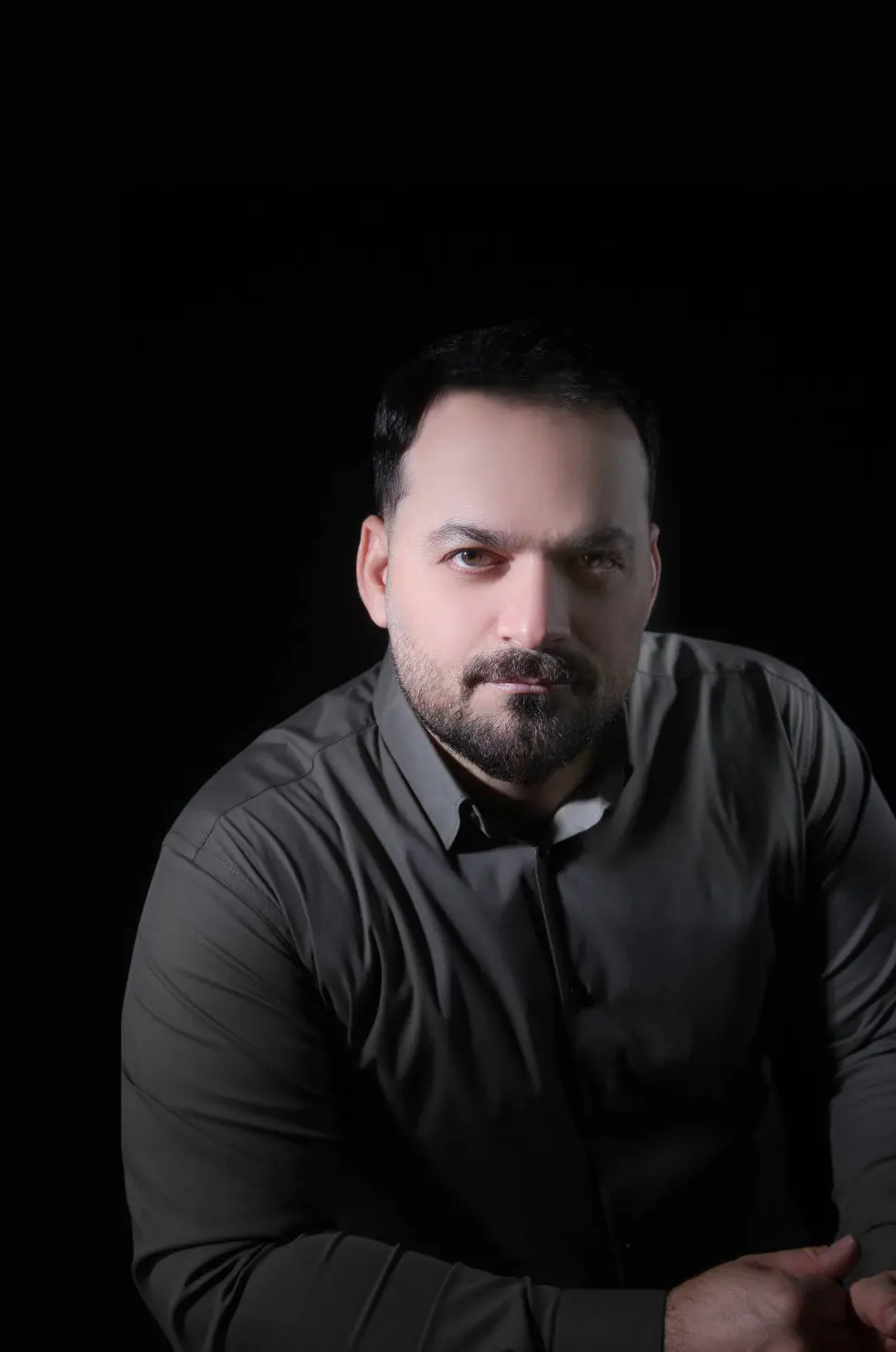Book a Psychotherapy Time
Choosing a Psychotherapist
Select your desired psychotherapist and complete the following steps to book your therapy session.

Niki Zekri
Founder, Board Member, and Faculty Member of the Khishtan Psychoanalysis Association
Professional Member of the Canadian Counselling and Psychotherapy Association (CCPA)
Former Member of the International Association for Psychoanalytic Self Psychology (IAPSP)
Former Faculty Member of the Tehran Psychoanalytic Institute
Certified in Analytical Psychotherapy by the European Federation for Psychoanalytic Psychotherapy (EFPP)
Based in Vancouver, Canada

Dr. Mahin Golbandi
Accredited Member of the UK Council for Psychotherapy (UKCP) and the British Association for Psychoanalytic and Psychodynamic Supervision (BAPPS)

Ali Sepehri
Board Member and Faculty Member of the Khoyeshtan Psychoanalysis Association
Member of the International Association for Psychoanalytic Self Psychology (IAPSP)
Based in Austria

Farhad Radfar
Board Member and Faculty Member of the Khoyeshtan Psychoanalysis Association
Research Fellow, Parenting Studies Center
Iran Psychiatric Institute
Based in Iran

Niki Zekri
Founder, Board Member, and Faculty Member of the Khishtan Psychoanalysis Association
Professional Member of the Canadian Counselling and Psychotherapy Association (CCPA)
Former Member of the International Association for Psychoanalytic Self Psychology (IAPSP)
Former Faculty Member of the Tehran Psychoanalytic Institute
Certified in Analytical Psychotherapy by the European Federation for Psychoanalytic Psychotherapy (EFPP)
Based in Vancouver, Canada

Dr. Mahin Golbandi
Accredited Member of the UK Council for Psychotherapy (UKCP) and the British Association for Psychoanalytic and Psychodynamic Supervision (BAPPS)

Ali Sepehri
Board Member and Faculty Member of the Khoyeshtan Psychoanalysis Association
Member of the International Association for Psychoanalytic Self Psychology (IAPSP)
Based in Austria

Farhad Radfar
Board Member and Faculty Member of the Khoyeshtan Psychoanalysis Association
Research Fellow, Parenting Studies Center
Iran Psychiatric Institute
Based in Iran

Niki Zekri
Founder, Board Member, and Faculty Member of the Khishtan Psychoanalysis Association
Professional Member of the Canadian Counselling and Psychotherapy Association (CCPA)
Former Member of the International Association for Psychoanalytic Self Psychology (IAPSP)
Former Faculty Member of the Tehran Psychoanalytic Institute
Certified in Analytical Psychotherapy by the European Federation for Psychoanalytic Psychotherapy (EFPP)
Based in Vancouver, Canada

Ali Sepehri
Board Member and Faculty Member of the Khoyeshtan Psychoanalysis Association
Member of the International Association for Psychoanalytic Self Psychology (IAPSP)
Based in Austria

Niki Zekri
Founder, Board Member, and Faculty Member of the Khishtan Psychoanalysis Association
Professional Member of the Canadian Counselling and Psychotherapy Association (CCPA)
Former Member of the International Association for Psychoanalytic Self Psychology (IAPSP)
Former Faculty Member of the Tehran Psychoanalytic Institute
Certified in Analytical Psychotherapy by the European Federation for Psychoanalytic Psychotherapy (EFPP)
Based in Vancouver, Canada

Niki Zekri
Founder, Board Member, and Faculty Member of the Khishtan Psychoanalysis Association
Professional Member of the Canadian Counselling and Psychotherapy Association (CCPA)
Former Member of the International Association for Psychoanalytic Self Psychology (IAPSP)
Former Faculty Member of the Tehran Psychoanalytic Institute
Certified in Analytical Psychotherapy by the European Federation for Psychoanalytic Psychotherapy (EFPP)
Based in Vancouver, Canada

Ali Sepehri
Board Member and Faculty Member of the Khoyeshtan Psychoanalysis Association
Member of the International Association for Psychoanalytic Self Psychology (IAPSP)
Based in Austria

Niki Zekri
Founder, Board Member, and Faculty Member of the Khishtan Psychoanalysis Association
Professional Member of the Canadian Counselling and Psychotherapy Association (CCPA)
Former Member of the International Association for Psychoanalytic Self Psychology (IAPSP)
Former Faculty Member of the Tehran Psychoanalytic Institute
Certified in Analytical Psychotherapy by the European Federation for Psychoanalytic Psychotherapy (EFPP)
Based in Vancouver, Canada
Frequently Asked Questions (FAQ)
Psychoanalytic psychotherapy is a therapeutic dialogue—a deep, gradual, and meaningful conversation. This approach helps us understand how what happens in our unconscious influences our decisions, relationships, emotions, and daily behaviors. Many problems that appear simple or repetitive on the surface have roots in early experiences and the hidden layers of the psyche. As long as these roots are not addressed, repetitive cycles continue, and superficial solutions are ineffective.
Psychoanalytic psychotherapy provides an opportunity for profound self-exploration: to recognize hidden patterns of feelings and thoughts, understand the complexities of the psyche, and get closer to what is truly happening within us. Rather than focusing solely on symptoms, this approach seeks to understand the underlying causes of phenomena. It is this deep perspective that makes psychoanalysis one of the most enduring and effective forms of therapy.
Sometimes we encounter emotions in our lives whose origins are unclear: anxieties without an obvious cause, relationships that repeatedly fail, or feelings such as emptiness, worthlessness, shame, guilt, fear, and anger that recur in different situations. When these emotions and patterns continue in cyclical, confusing, or debilitating ways, they may indicate parts of our unconscious that have been neglected and require attention.
Psychoanalytic psychotherapy is an effort to understand these hidden layers of the psyche. The goal is not merely to reduce symptoms; it helps us inflict less harm on ourselves and others, increase our capacity to tolerate difficult emotions and realities, and establish more stable and secure connections with ourselves and others. This path relies on our inner potentials and capacities—for the growth of awareness, the discovery of meaning, and the deepening of our lived experiences and human relationships.
Yes, online psychotherapy sessions can be highly effective. With advances in technology, it is now possible to conduct sessions that, in terms of the quality of the therapeutic connection, are not significantly different from in-person sessions. In the past, especially before the COVID-19 pandemic, many professional psychoanalytic institutions and therapists considered only face-to-face sessions as valid. However, during the pandemic, the need for online services led to a wider adoption of virtual psychotherapy.
Research studies have also shown that, in many cases, online sessions can be as effective as in-person therapy. This effectiveness, however, depends on the quality of the therapist-client relationship, the security of the virtual environment, and the individual’s psychological readiness to engage in an online session. Moreover, a successful online session requires creating a calm, uninterrupted space that respects privacy, allowing the client to participate with focus and a sense of safety.






